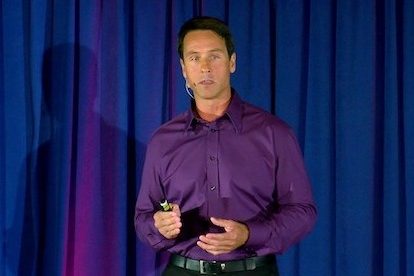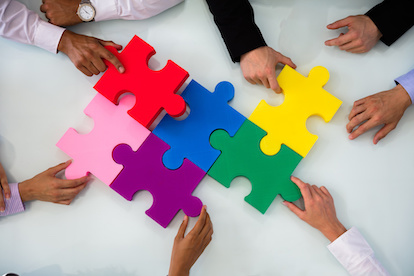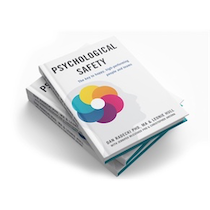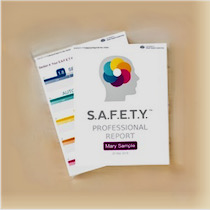Recent evidence points to the fact that a record number of Americans are relocating to areas that are more in line with their political views, suggesting that the social division in the US over the past two years has driven people to crave an environment which conforms with their mindset. Though this evidence specifically addresses regions in the USA, we suspect that this migration towards uniformity in our neighborhoods is a global phenomenon following the two years of emotional challenges associated with the pandemic. While on the surface it may seem puzzling that we seek uniformity in our environments, given the substantial research demonstrating the benefits of embracing diversity, it is understandable when viewed through the lens of neuroscience.
The social division that has emerged and escalated throughout the last few years could well be the result of our brain’s nonconscious drive for safety and survival and a natural response to the long-term threat and stress of the pandemic. From a neuroscience perspective confining our social circle to ‘people like us’ can help satisfy our brain’s important, non-conscious interpersonal S.A.F.E.T.Y.™ needs of Security, Autonomy, Fairness, Esteem and Trust. By understanding these needs and how they have been impacted by the pandemic, we can better appreciate why we have gravitated to in-group mindsets and behaviors and how we can manage these needs to build psychological safety and foster inclusion despite our differences.
Our Brain’s Security Need
To understand the foundation, consider that our brain has been constructed to first and foremost ensure that we are safe, and nothing feels safer than a familiar environment. What’s more, this desire for familiarity, or Security, is even more pronounced during times of stress. Think about it…how good does it feel when we’re sick to have our “comfort” food that mom had made for us since we were a child, in the confines of our own, safe home with a trusted loved one around? This familiar environment helps alleviate our suffering and nurtures the healing process. There’s a reason why people feel less pain when experiencing the touch of a loved one as opposed to being alone or in an unfamiliar environment. Environments that are consistent and predictable are easier to navigate, the brain can relax, not needing to think as much or engage the more complex and energy intensive brain networks required to manage uncertain settings. In contrast, excessively novel environments can activate our brain’s threat system and result in an automated, primal response that leaves us vulnerable to our raw emotional reactions and biases, as opposed to a more thoughtful, empathetic approach in our behavior.
Now consider the impact to our security over the past two years. I would challenge you to think of an aspect of life where that sense of certainty hasn’t been compromised: disruption to work routines, food supplies, job security, travel and social interactions are a few big-ticket items that were filled with uncertainty on a daily basis. More broadly there is the long-term lack of certainty around when, how and if this will all end, and what the state our economy and world will be in when it does.
Some have found comfort in the security offered by wearing masks, sanitization, and frequent coverage of covid status updates. For many of these people, changing back to pre-pandemic conditions has been a threat as they have become DEPENDENT upon these provisions and rely on them to make them feel ‘safe’. We saw division arise when these people were confronted with those who were resistant to these impositions, who challenged compliance and who looked forward to the rules and restrictions on their freedoms being lifted.
So how does social uniformity satisfy our Security need?
We feel more secure in a community aligned with our thinking and expectations, and tend to relate to that community better. There is more predictability and certainty about what we are likely to experience in our day-to-day lives, with less surprises to rattle our safety.
Our Brain’s Autonomy Need
We have had virtually no power to influence or improve our pandemic situation. A lack of power and control over our lives has its own implications from a brain perspective. Research has shown that a lack of Autonomy or control may result in an increased perception of pain , an increased risk for hypertension and may be associated with neural modifications consistent with depression. Throughout the pandemic our choices have been extremely limited: where we can go; what we can do; how we work; where we work; and who we can see. This lack of choice and the inability to make our own decisions over such a long period has contributed to the pandemic fatigue, diminishing motivation and feelings of hopelessness that many have reported experiencing. As a response our brains look for ways to reduce our suffering and increase our sense of control.
So how does social uniformity satisfy our Autonomy need?
By choosing to reside and socialize with those ’like us’ we have more control over who and what we are exposed to, and the narrative and interactions we have. This will then increase our perceived psychological safety.
Our Brain’s Fairness Need
And what about Fairness? Imposed restrictions and lockdowns; watching crowds panic buy and hoard limited supplies; navigating the pressures of home schooling and working from home; and the inability to spend time with loved ones (especially in their time of need) have all contributed to a sense of unfairness. Many of us have been pushed beyond what we consider reasonable for a variety of reasons. Our views on government actions have also triggered fairness issues that have further fueled the divide. On one hand there are those that consider this loss of freedoms a fair trade off for the protection of our communal safety … and others who consider it totally unfair to have their freedoms and rights restricted.
The difficulty with this situation is that these two groups are experiencing the same fairness trigger, but for opposite reasons. Our brain responds strongly to fairness, and a perception of unfairness can hinder our ability to regulate our emotions and heighten our desire for justice. This can lead us to seek targets for blame or revenge, another often irrational and unhelpful brain response that can fuel dissention and discord and reinforce the us vs them bias that compels us to seek in-group alliance and fight against our outgroup.
So how does social uniformity satisfy our Fairness need?
By choosing to reside and socialize with those ’like us’ we tend to feel a sense of fairness that we are surrounded by people who accept and acknowledge our opinions, thoughts and behaviors, and who would stand up and defend us in the justice we seek. Conflict is minimized in this scenario, and our psychological safety feels somewhat preserved.
Our Brain’s Esteem Need
Another casualty of the pandemic has been our mental health with dramatic increases in cases of anxiety and depression. It is not surprising that people are struggling to find the coping mechanisms to manage the mounting pressures in this unstable situation. Maintaining a positive self-image is tough when we feel we are ‘failing’ to adapt quickly to meet the evolving needs and expectations of work and family, especially when hit with health and financial challenges. This is compounded for those who have experienced either job loss, cutbacks, or a decrease in their work or social status as a result of the economic impacts from the pandemic.
These Esteem hits are yet another stress trigger for our brain. Our esteem is fundamental for both our health and survival. Research shows that a challenge to our esteem, particularly in the form of social rejection, can activate the same brain areas that deal with physical pain. To counteract the ‘pain’ of these hits and to rebuild our esteem our brain will seek opportunities and environments that will validate and increase our social status.
So how does social uniformity satisfy our Esteem need?
What better way to boost esteem and reduce our ‘social pain’ than to remove ourselves from environments that challenge or even reject our perspectives, and rather choose environments where we are surrounded by people who validate and embrace who we are and what we stand for? This social validation alleviates some of that pandemic-induced mental pain and helps us maintain some semblance of psychological safety.
Our Brain’s Trust Need
Finally, our brains’ Trust trigger speaks most directly to this topic and offers compelling evidence and rationalization for the trend toward social uniformity during these times. Our brains are socially driven, they are wired to seek connection and belonging and to avoid rejection, and this desire is amplified in times of stress. As humans, establishing trusted social bonds is critical for survival. Having strong, reliable social circles and eliminating our enemy and competition are protective safety mechanisms, and the brain’s sensitivity to trust is simply about navigating the in-group vs out-group dynamic to protect us from harm.
Our brain’s safety default is to assume that something or someone could be dangerous unless otherwise proven to be safe. At a non-conscious level the brain sees all strangers as a threat, and it quickly categorizes people as either ‘friend’ or ‘foe’. Our brain has an instinctive bias against those who are different as it perceives them as ‘unknown’ and a potential threat to our ‘safety’. In contrast our brain is more likely to empathize and connect with those that it deems ‘safe’ – i.e. those who are similar to us and likable. These “similarities” can be surprisingly small and insignificant in the grander scheme of things, like sharing a love for the same sporting team, book or food.
Establishing just one relatively inconsequential commonality with a stranger you meet can be enough for the brain to override its out-group bias response and move that stranger into your in-group. However, this requires us to enlist our ‘higher-brain’ functionality and in times of threat this ability is compromised. With that higher-brain offline, our mental resilience and self-regulation is impacted and we become more susceptible to the ‘in-group’ vs ‘out-group’ bias.
So how does social uniformity satisfy our Trust need?
We are biologically wired to feel safest with those who are ‘like us’, bonding with our ‘in-group’ satisfies our social need to be connected and belong, as well as provides protection from our perceived enemy. The last few years we have witnessed polarization across the globe as people have rallied around issues aligned with their ideologies, perspectives, political views, gender, race and preferences. While there are many factors that have contributed to the fear-culture fueling these debates, the damaging result has been a dangerous assault on our Psychological SAFETY and a feeding of our primal threat instinct – in such an environment the gravitation to ‘those like me’ is an appropriate survival response.
It has been striking to see the impact of a population under a “neural barrage” who have their higher brain function switched offline. Watching the instinctive in-group mentality play out as people gravitate to what and who they know as being the only truth, and strongly opposing their ‘out-group’ of ‘different others’. In the US this manifested as an alarming increase in hate crimes, social uprisings, and political division. When we apply a brain-based lens we can more fully appreciate the considerable impact the global pandemic has had on our Psychological SAFETY over the past two years. It is little wonder that our relationships and communities have suffered due to the prolonged trauma.
Irrespective of your views and beliefs, understanding the brain’s social triggers, recognizing how they are fueled and manipulated, and learning the tools to manage them could well be the answer to breaking the cycle of division beyond the pandemic. Our differences have been the dominant topic for far too long, it’s time to re-engage the things that make us uniquely human and reconnect with all the things we have in common to build more accepting and inclusive environments where we appreciate what everyone has to offer, not just those who look, think, act and talk like us.











